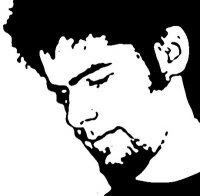Welcome to The Welcome Project. After deciding to throw my proverbial hat into the blogosphere a few weeks ago, I’ve been sitting on this space without any material that I felt was “first post” worthy. Now,
As I woke up to the sun already beaming down on Caracas this morning, I couldn’t help feeling that a weight had been lifted off my shoulders, and that I was indeed waking up in a new, more hopeful world. Like a movie, the sky was clear of the usual clouds flowing in over the mountains as I made my way down to my bus stop today. In the end, it was easily the clearest day that I have had in the three months I have now been in
___________________________________________________________________
CARACAS, Venezuela | By Simon Romero The sputtering bus inched its way up the streets of Petare, this city’s largest slum, delivering its passengers in front of Vecinito, Enrique Cisneros’s corner store. Salsa blared from loudspeakers perched nearby on the stoops of cinderblock hovels.
“Pull up a seat, we’re celebrating tonight,” said Mr. Cisneros, 37, opening a bottle of Blender’s Pride whiskey. He poured the spirit into plastic cups, mixed in some orange juice, and declared to his guests, “The United States is choosing a black man as its president. Maybe we can share a bit in this happiness.”
His guests Tuesday night included a schoolteacher, a shoe factory worker, an accountant’s assistant, a telephone operator and a couple of foreign journalists. They sipped Mr. Cisneros’s concoction or nursed Polar Ice beers and engaged in
“This is the first American election I can remember in my lifetime that I was eager to witness,” said Armando Díaz, 24, who works at Movistar, a cellphone company here.
“Before, we’d just switch the channel to baseball,” said Mr. Díaz, gazing at a television announcer on Globovisión and wrapping Venezuelan rapid-fire Spanish around the names of states like
As they do in almost any gathering here in which people examine the toxicity of Venezuelan political life, in this instance through the lens of the election of Barack Obama as president, jokes ensued.
Sitting under a poster of a playful painting by Carlos Cruz-Díez, a kinetic artist, most of those present proudly identified themselves as “pitiyanquis,” or petite yanquis, thus appropriating a vitriolic insult used with increasing frequency by President Hugo Chávez to describe his opponents.
“I wonder if Chávez can stop referring to the
As if on cue, Globovisión shifted its broadcast to focus on a political cartoon from Tuesday’s newspapers here, showing an image of Mr. Chávez and the headline “Anti-Imperial Discourse,” under a smaller photo of Mr. Obama next to the words, “Expiration Date, 11/4.”
In other words, the punching bag that the Bush administration has been for Mr. Chávez may be losing its stuffing.
As night engulfed the streets outside Vecinito, revelers rejoiced. As slums go, this area of Petare, called La Montañita, was not so bad, they claimed. Many of its residents were working class or middle class, struggling to rise in life. They all agreed their most pressing concern was with violent crime.
“Sometimes the police don’t arrive for an entire day to pick up the body after someone is shot dead on the street,” said Yamile Contreras, 30, a telephone operator with hair dyed about a shade lighter than Marilyn Monroe’s. “Is it true
Then they turned the tables on their journalist guests, peppering them with more questions about American oddities like its electoral college. (Is that democratic?) They asked when
Bidding farewell after an evening filled with awe over the events unfolding in the
Ear-splitting salsa blared again from the speakers of the car, an astonishingly large 1982 Chevrolet Malibu without seat belts. “I love American cars,” the taxi driver said as he drove on Petare’s maze of streets, which were still buzzing with pedestrian activity past
“A few hours ago,” said Mr. Cisneros, “the world felt like a different place.”
So, at risk of recalling the lyrics of that horrible country song that they always play at the 4th of July: Today, I am indeed proud to be an American. As I listened to the community of travelers that makes up my school, I agreed with the comments that, as Americans in the recent past, many have felt apprehension when going abroad on how a certain foreign community would react to Americans. I believe that, at least for the foreseeable future, that concern has now disappeared. I am confident that the sole act of electing a President Barack Obama has already improved our immediate standing in the world.
While I know that the hardest work lies ahead, I know that something great has already been accomplished. Thousands of miles away from my home, I saw an enthusiasm and excitement about
Looking back, I can remember a cold December day in
With the risk of again sounding too cliché:
We’ve come a long way since then.
